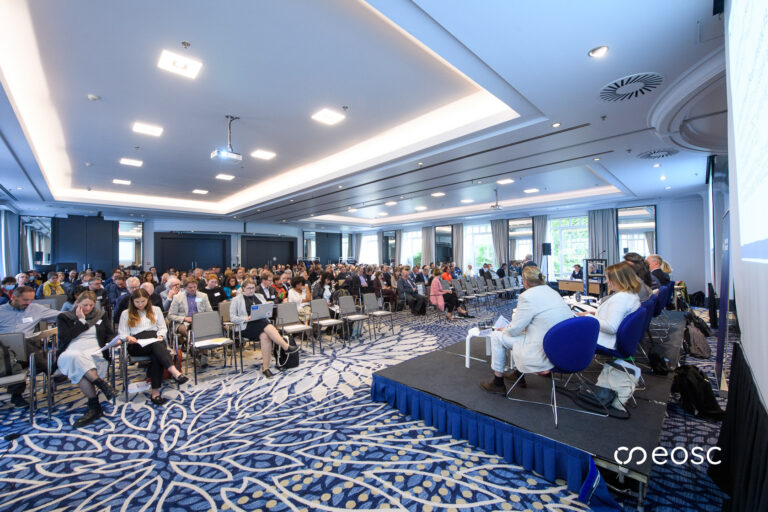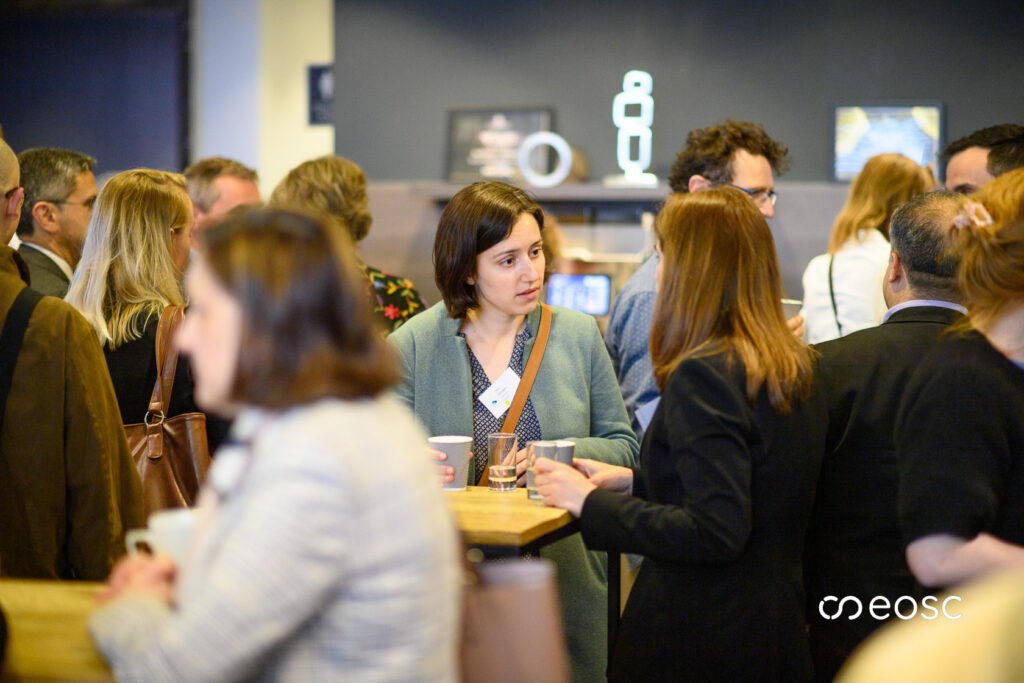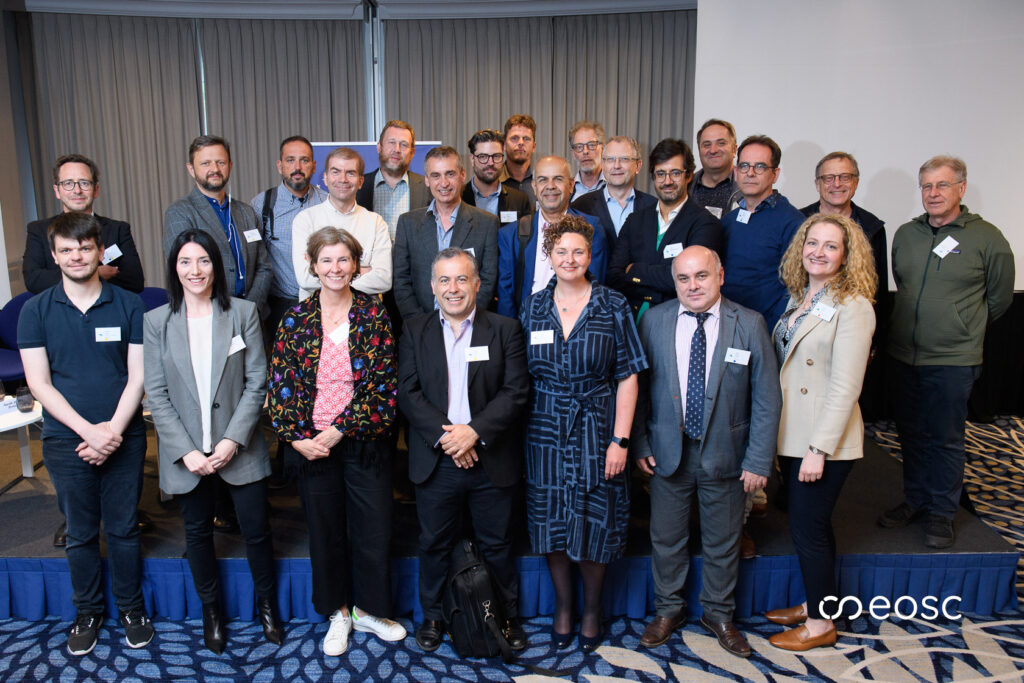4th General Assembly
of the EOSC Association
Brussels (Belgium), 24-25 May 2022
© Miguel Rey Mazón (TU Graz), 02.06.2022
The fourth General Assembly of the European Open Science Cloud Association, the first one to be held “in person”, took place during two days of intense meeting and networking activity. Around 110 participants, including mandated organisations, members and observers, gathered at the Renaissance Hotel—close to the European Parliament—to discuss internal matters of the Association as well as ongoing and planned activities.
Austrian members of the Association were represented by Paolo Budroni (ACONET and TU Vienna), Lisa Hönegger (University of Vienna and AUSSDA), Ilire Hasani-Mavriqi and Miguel Rey Mazón (TU Graz). Mr Budroni was part of the panel that discussed the organisation of events at the member states as a means to realise the tripartite collaboration between the European Commission, the EOSC Association, and the mandated organisations as representatives of the EU member states. The very recent EOSC Café in Vienna on 23 May (i.e. only a day ahead of the General Assembly) organised by Austria’s mandated organisation shows that this activity is already underway.
The reports by the Association’s president Karel Luyben and secretary general Ute Gunsenheimer focused on the activities carried out since the last general assembly. Of particular importance here is the development of the European Partnership in collaboration with the two other pillars of the tripartite EOSC governance (European Commission and Steering Board representing the Member States) through meetings in December 2021 and

Picture 1: View of the EOSC-A General Assembly (Photo: Christophe Licoppe)
April 2022, since it is the Partnership’s responsibility to co-create the parts of the Horizon Europe Work Programme relevant to EOSC, and align national and European agendas relative to EOSC’s implementation and reporting procedures. Further collaboration between the Association and the EC is also mandatory for the procurement call for EOSC Core to ensure that the Minimum Viable EOSC (MVE) can be successfully developed and implemented.
Regarding EOSC-related projects, ongoing conversations with EOSC Future (the largest project, funded in the previous Horizon 2020 framework) have initiated collaboration around the project’s Key Exploitable Results (KERs). An event will take place in September 2022 for a “hand-over” of Horizon 2020 INFRA-EOSC calls to the in Horizon Europe were also reported.
The meeting with the European Strategy Forum of Research Infrastructures (ESFRI) in January 2022 participation of European infrastructures in EOSC was also reporting. While there is still much to do to integrate research infrastructures in EOSC, the main milestones and obstacles for this to happen have already been identified.


Picture 2: Lisa Hönegger und Ilire Hasani-Mavriqi discussing during a break in the GA (left); Paolo Budroni ith all EOSC mandated organisations (right) (Photos: Christophe Licoppe)
Other issues covered included the role of mandated organisations (important as representatives of the diversity of organisations within a member state interested in taking part in and benefiting from EOSC), the role of Advisory Groups and Task Forces for the development of critical aspects of the EOSC, and the presentation of the project EOSC Focus, which from June 2022 will work towards establishing and improving the organisation of EOSC and its coordination with the EC, projects, member states and others—in short, to guarantee that everything comes into place to enable the successful implementation of EOSC. Through their participation in the EOSC Focus consortium, TU Vienna and TU Graz will contribute with first-hand experience to the latest development of EOSC and will ensure that Austrian institutions continue being a driving force of the whole initiative.
Last but not least, the new EOSC logo that has resulted from an open competition was presented (see this document’s header). It will be rolled out in all corporate branding in the coming months.